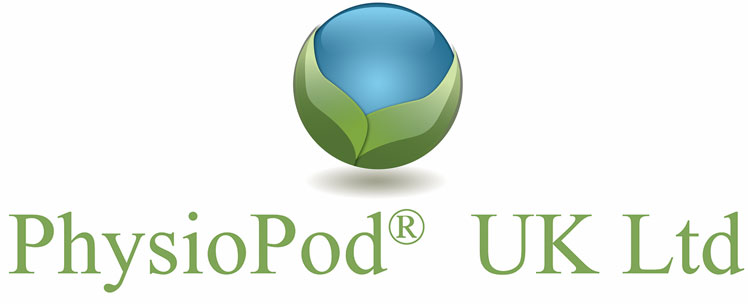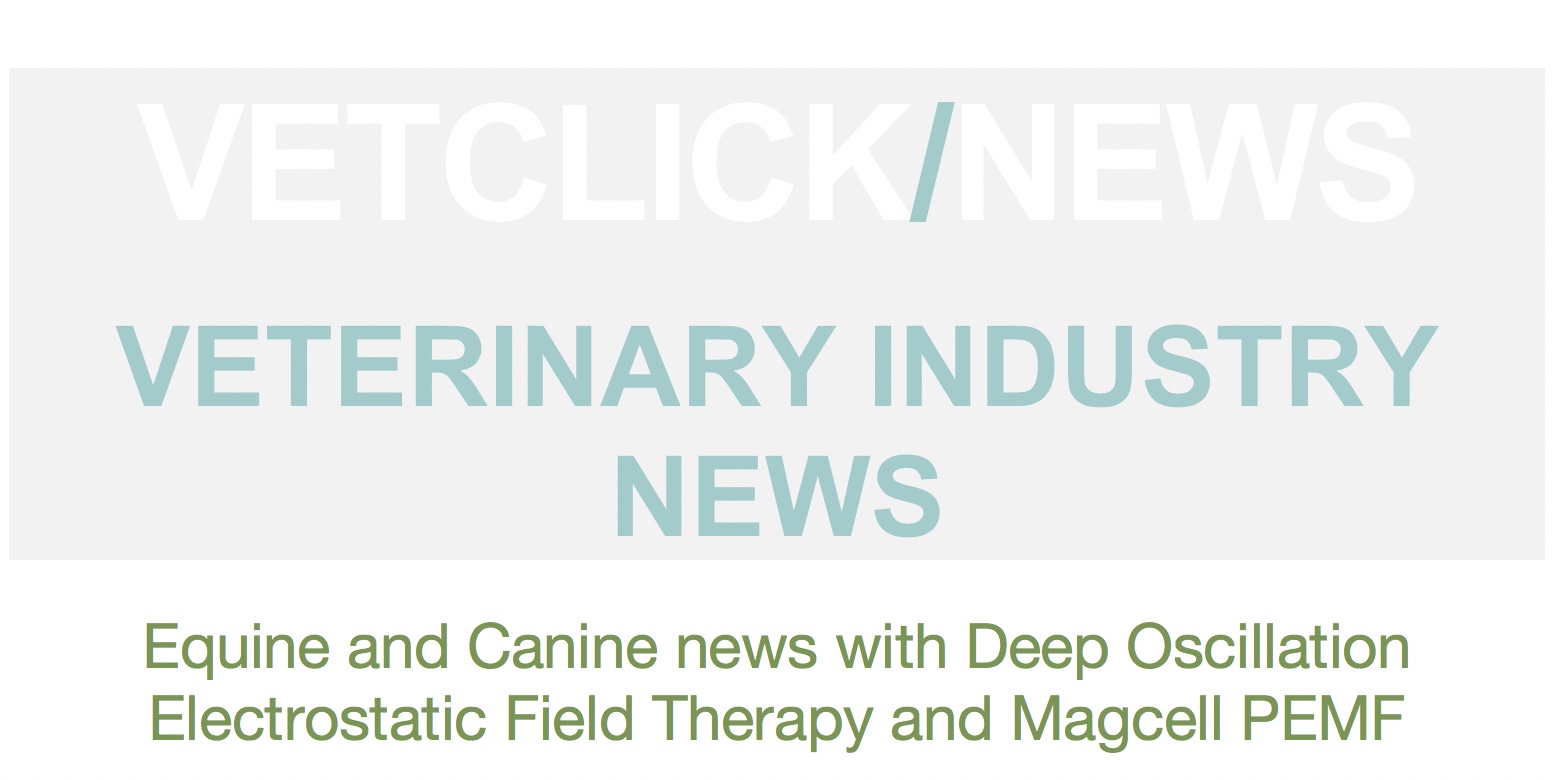Canine Healing: Barbed Wire Tear Post Surgical Healing Boosted with Deep Oscillation Therapy
Jack a one-year old Springer Spaniel lives on a farm with his Mum Stephanie, his Springer brother Harold, two years old and his Grandpy Zak, nearly fourteen. They are surrounded by open farm land with lots of interesting and varied scents which are investigated at high speed.
13th March 2021
Whilst out walking, Jack became entangled in barbed wire, Mum Stephanie saw it happen but Jack managed to extract himself and ran off apparently unhurt. Later that evening laying on Mum for cuddles in his favourite splayed position, it was horrifyingly apparent the barbed wire had caused a significantly, long ragged tear in Jack’s groin. Due to COVID-19 restrictions veterinary visits are not straight forward, his Mum had cleaned the wound immediately with Hibiscrub (Chlorhexidine) which is used a lot on the farm. Jack was not examined at the vets that evening due to an emergency, but was given antibiotics and a cone to wear around his neck so he could not lick or aggravate the open wound, surgery was booked for Monday.
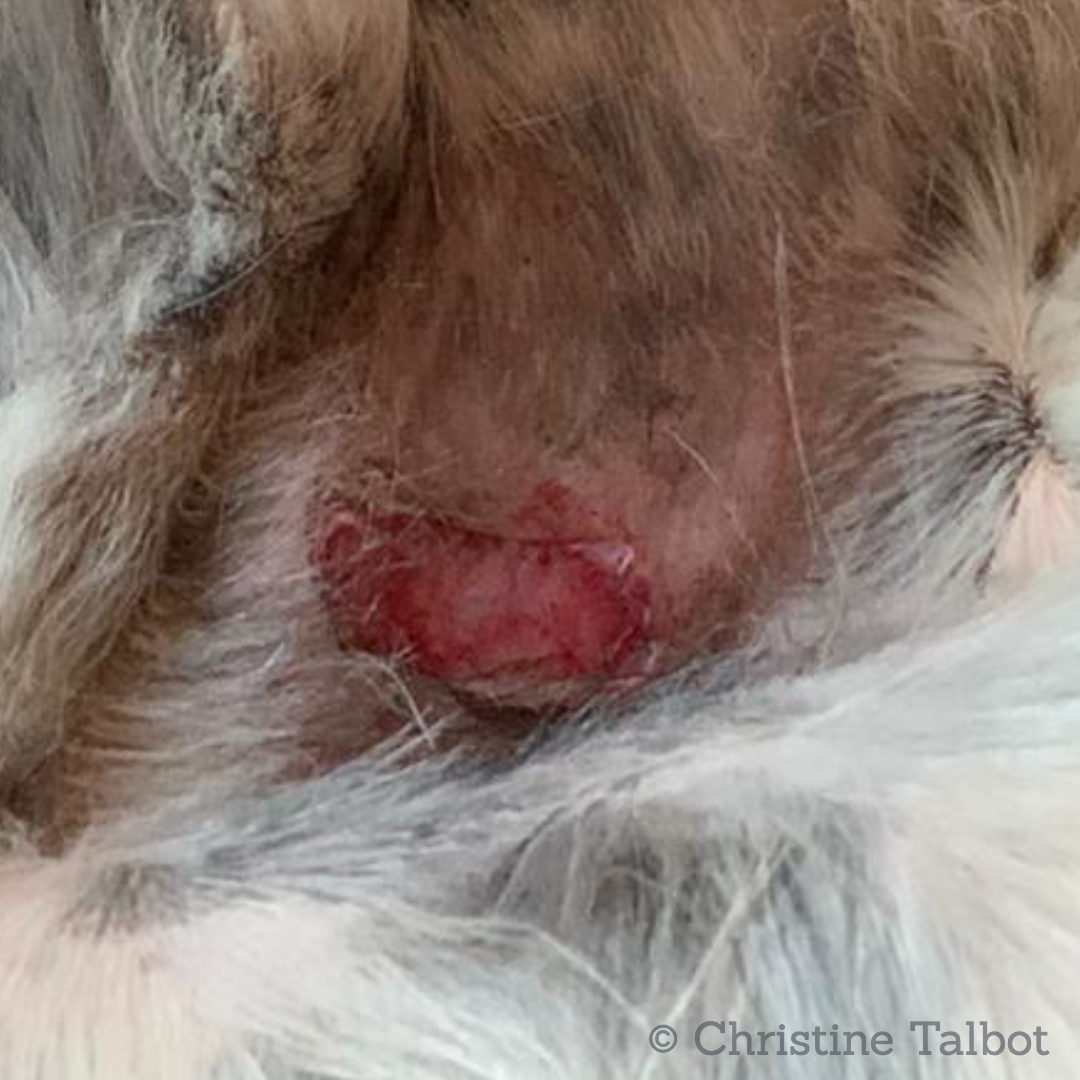
Picture 1: Shows nasty barbed wire soft tissue tear
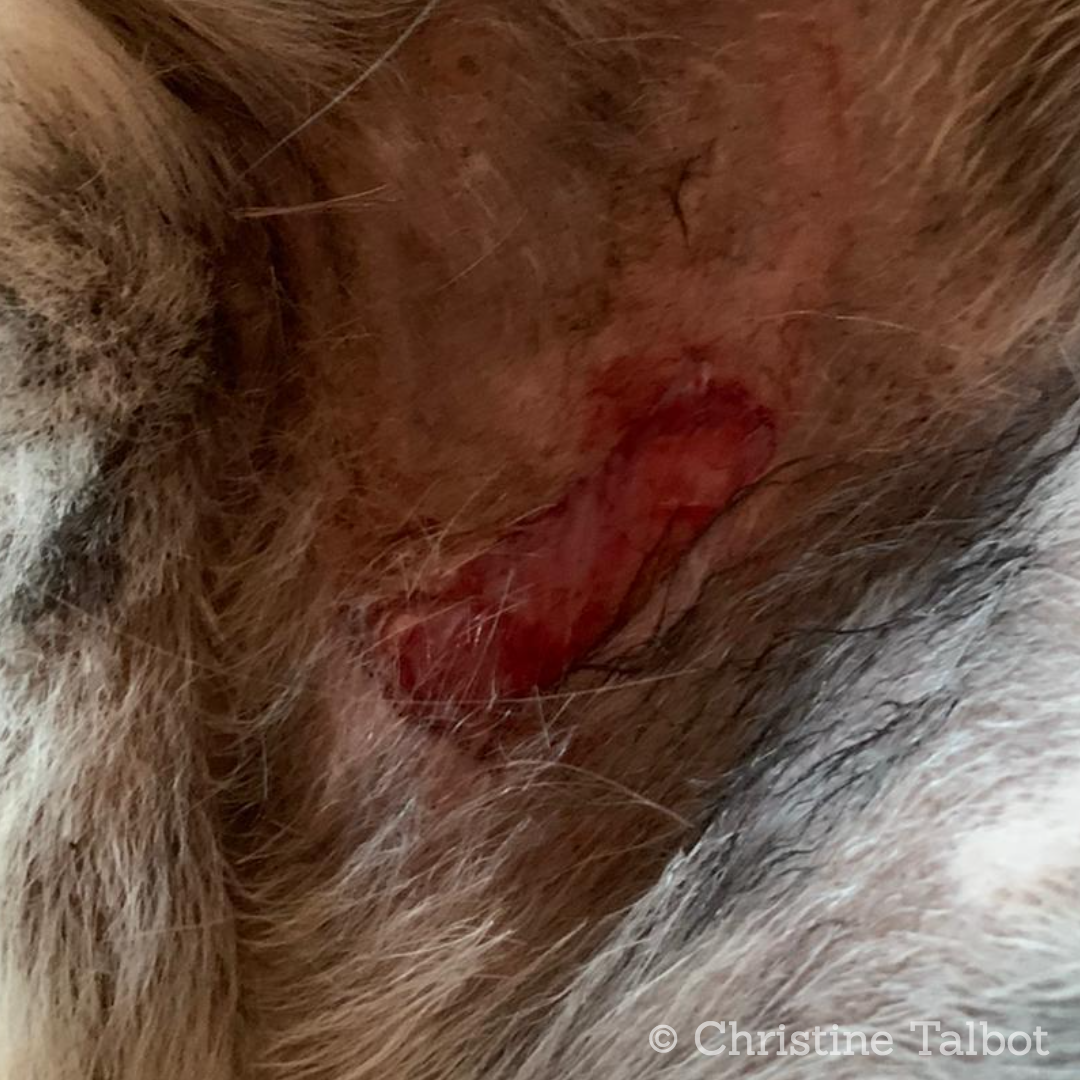
Picture 2: Shows close up of the length and width of the damage with tissue rolling back
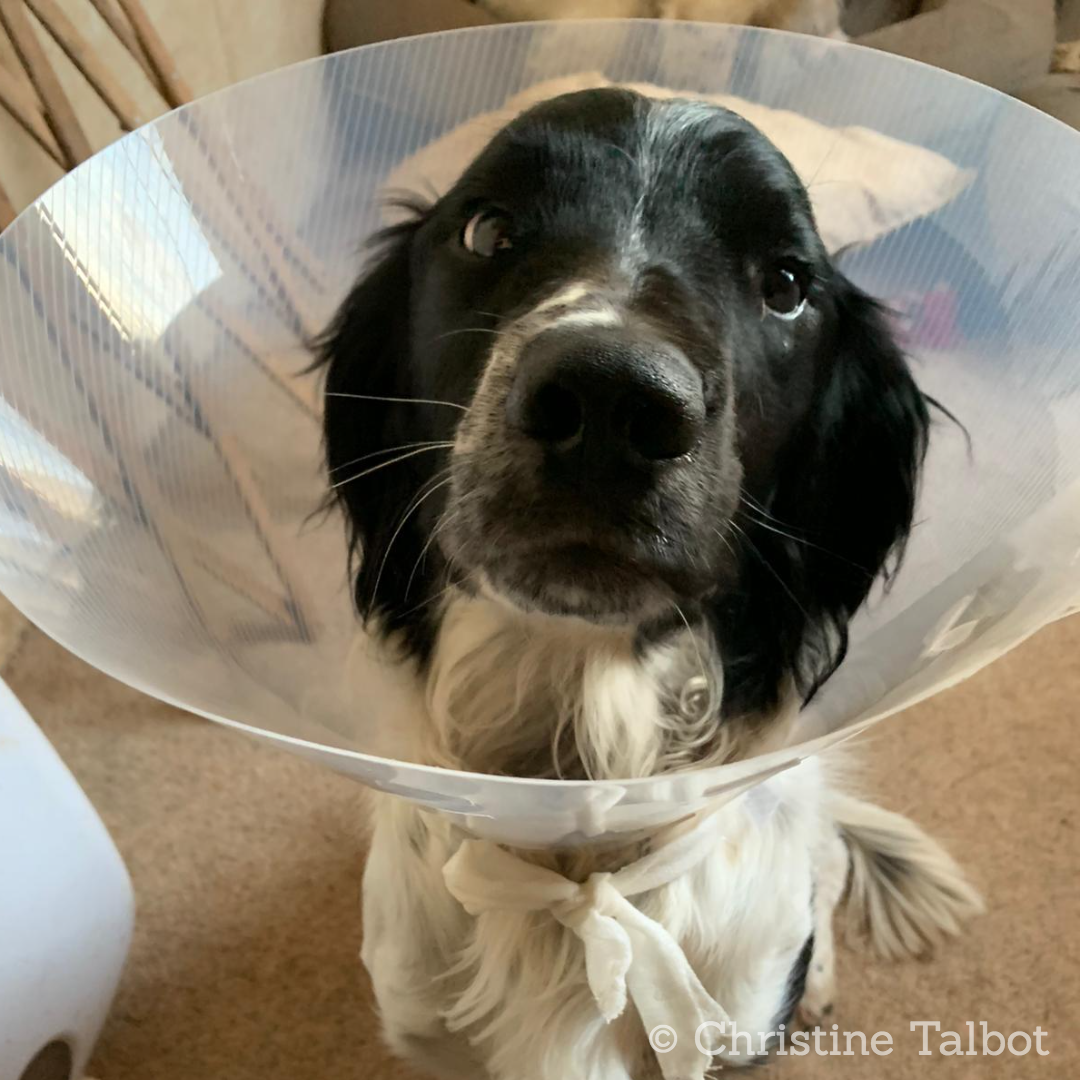
Picture 3: Anxiously awaiting surgery
15th March 2021
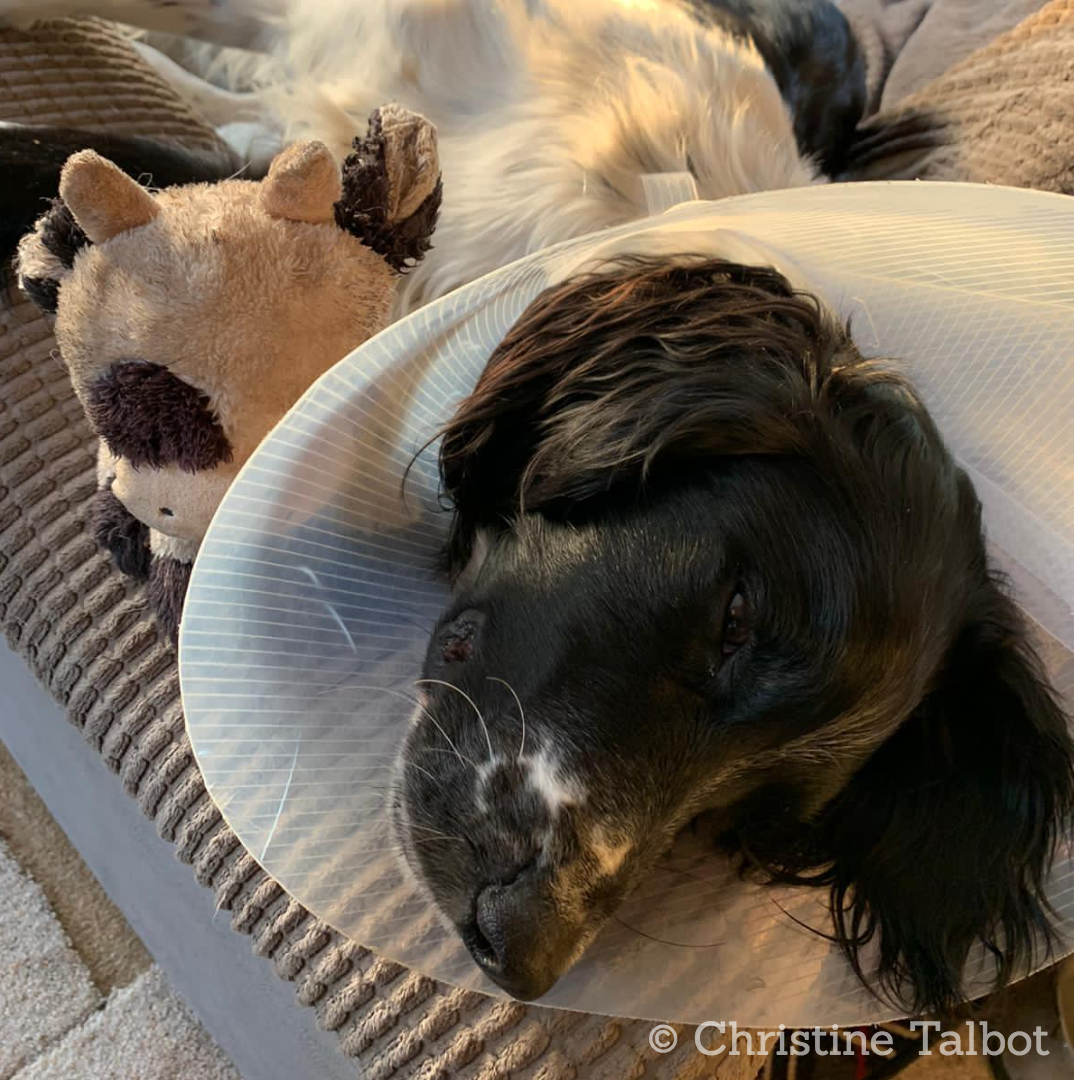
Picture 4: Surgical repair. An anxious and tiring day for Jack who hates being separated from his Mum.
17th March 2021
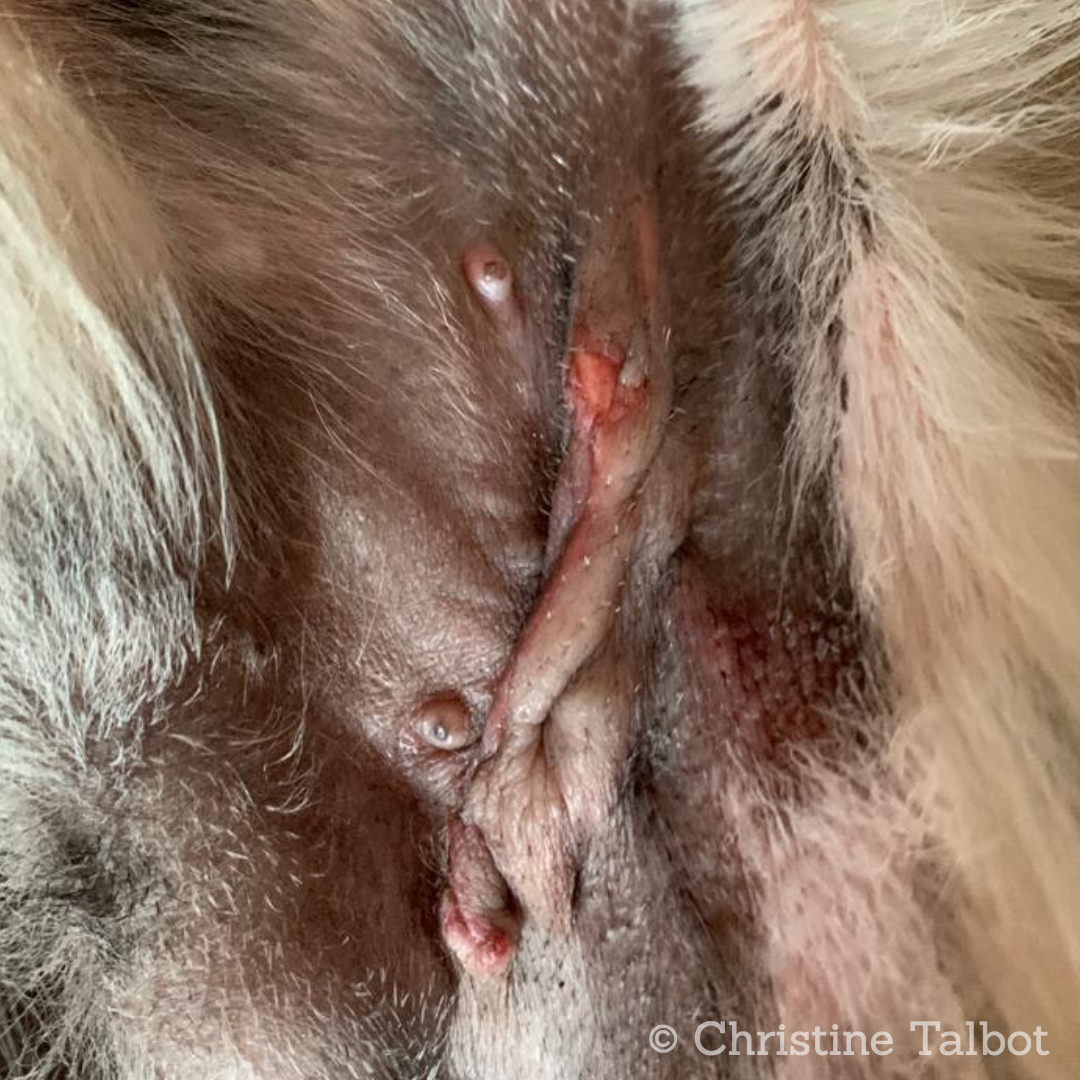
Picture 5 - Wound prior to Deep Oscillation Therapy
Second day post op, Jack visited for Deep Oscillation therapy (with veterinary agreement). The scar was erratic in appearance. I would imagine due to the jagged nature of the tear bringing the wound together with clean edges was far from easy, requiring a fair amount of debridement of the torn flesh.
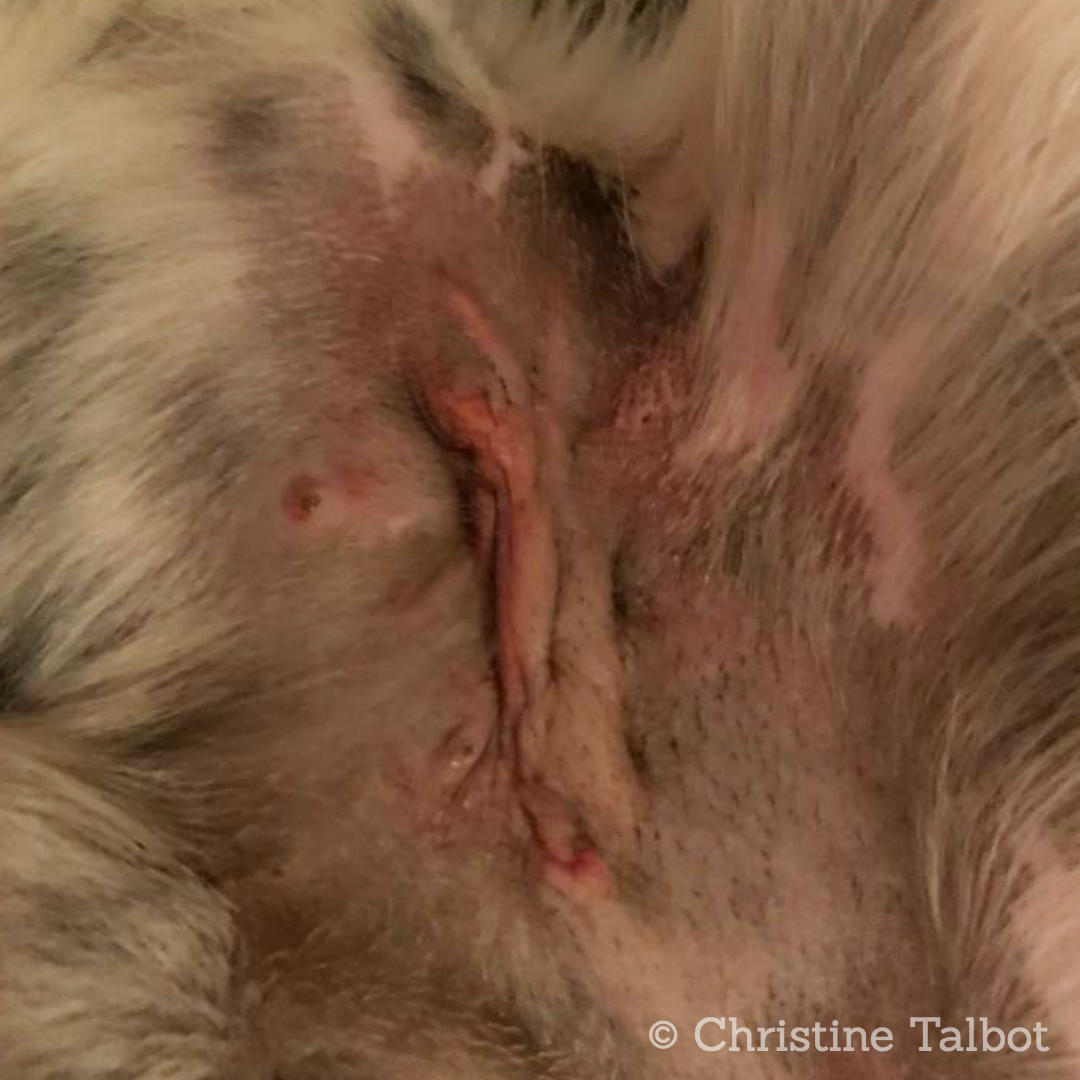
Picture 6: After 20 minutes of Deep Oscillation Therapy
Jack was un-phased and lay back on his Mum in his favourite splayed position. I was shocked and surprised to see the ‘tributaries’ of the scarring unlike scars I normally treat, Jack did not flinch as I applied the large applicator head to the wound at an initial Hz of 160, at the same time Jack’s Mum held the Quantum Wave Laser on a scar setting over the area. Periodically I lowered the Hz and swapped with holding the applicator head in my left hand and working over the scar with a gloved hand. I treated the area for about twenty minutes and in that short time it was remarkable to see the scar changing before our eyes. Jack had become quite sleepy so I laid the Magcell on the scarring for five minutes to encourage blood flow to the area and lent the Magcell and a red low level laser pen so Jack could receive some home treatment.
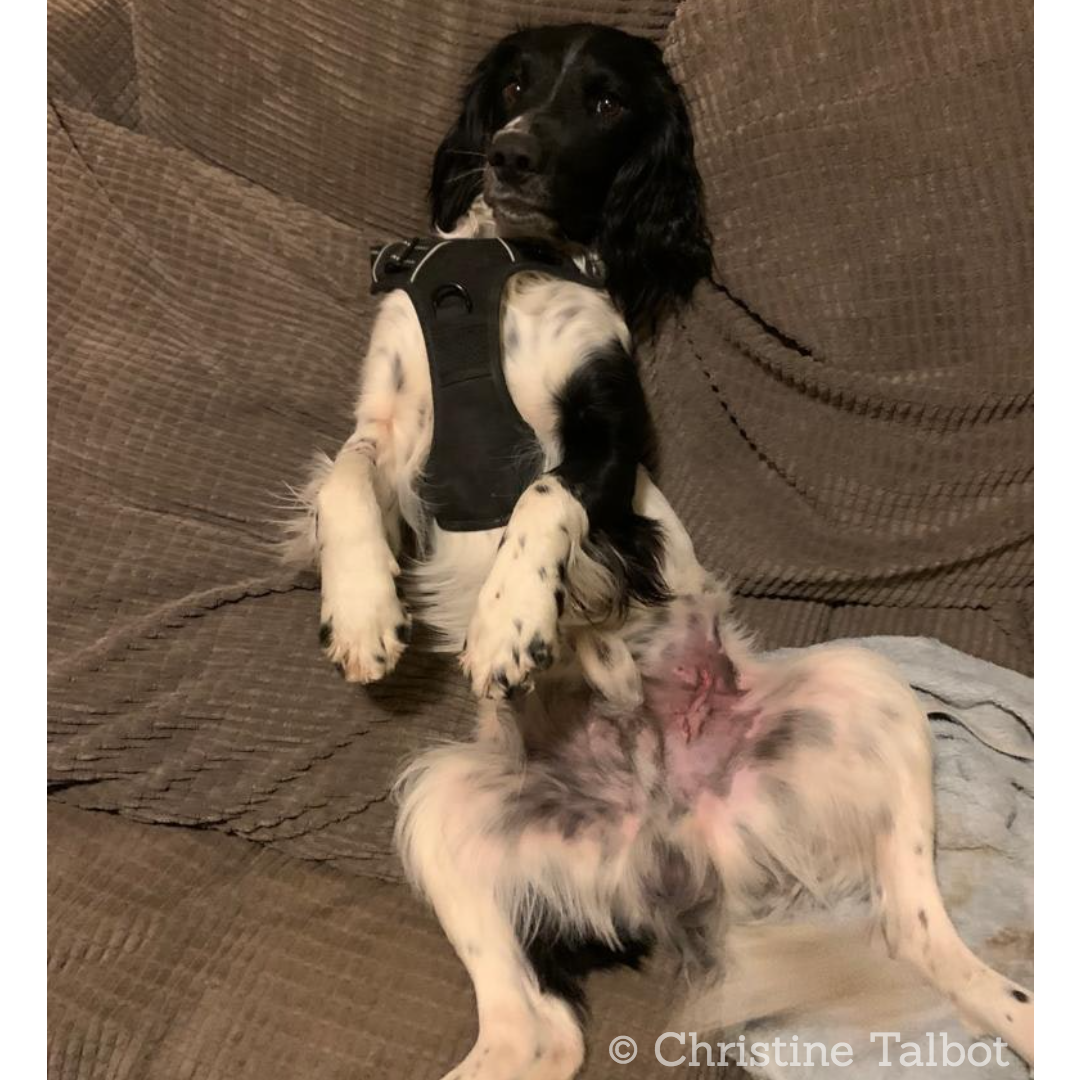
Picture 7: Back home relaxing after treatment
18th March 2021
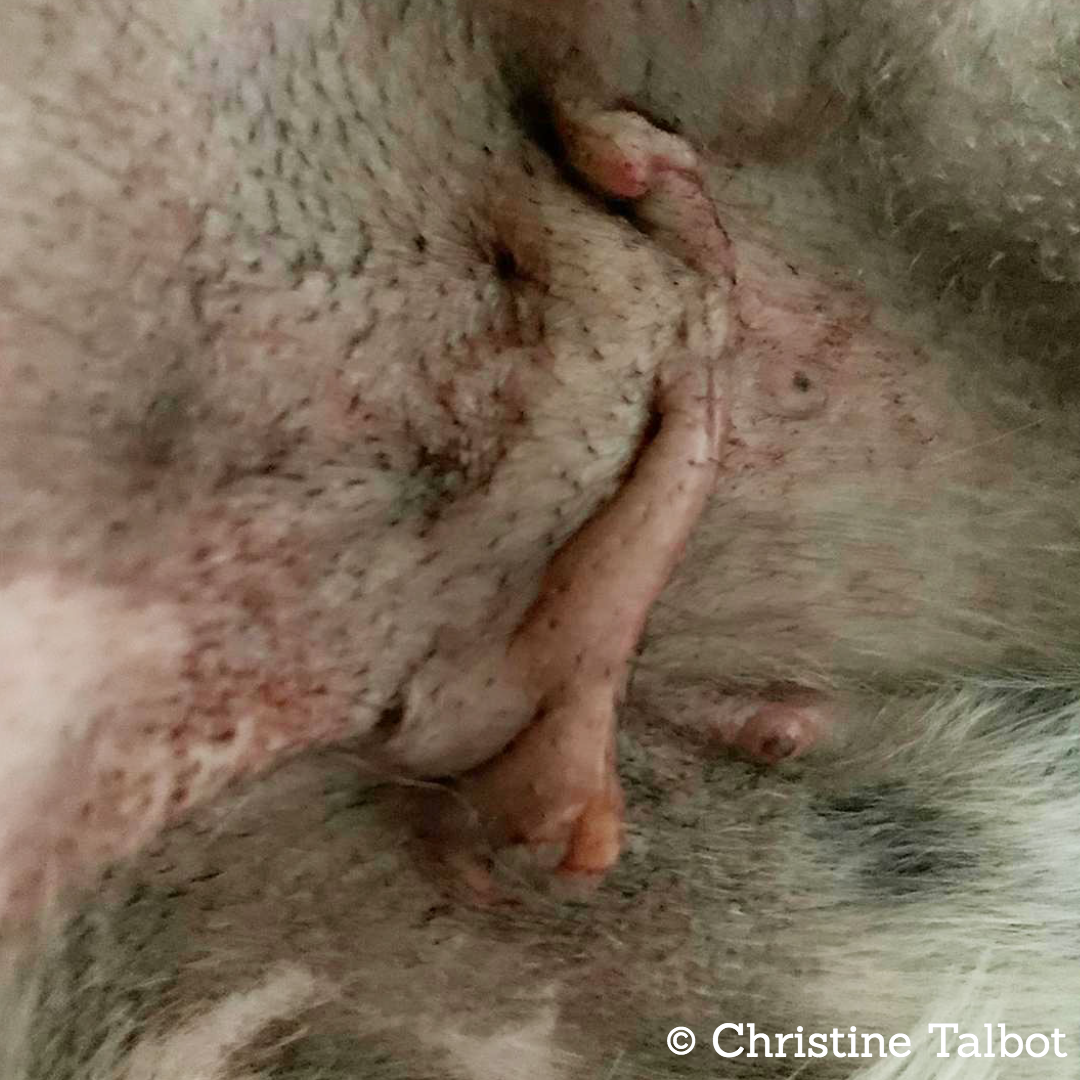
Picture 8: The morning after the first Deep Oscillation Treatment
22nd March 2021
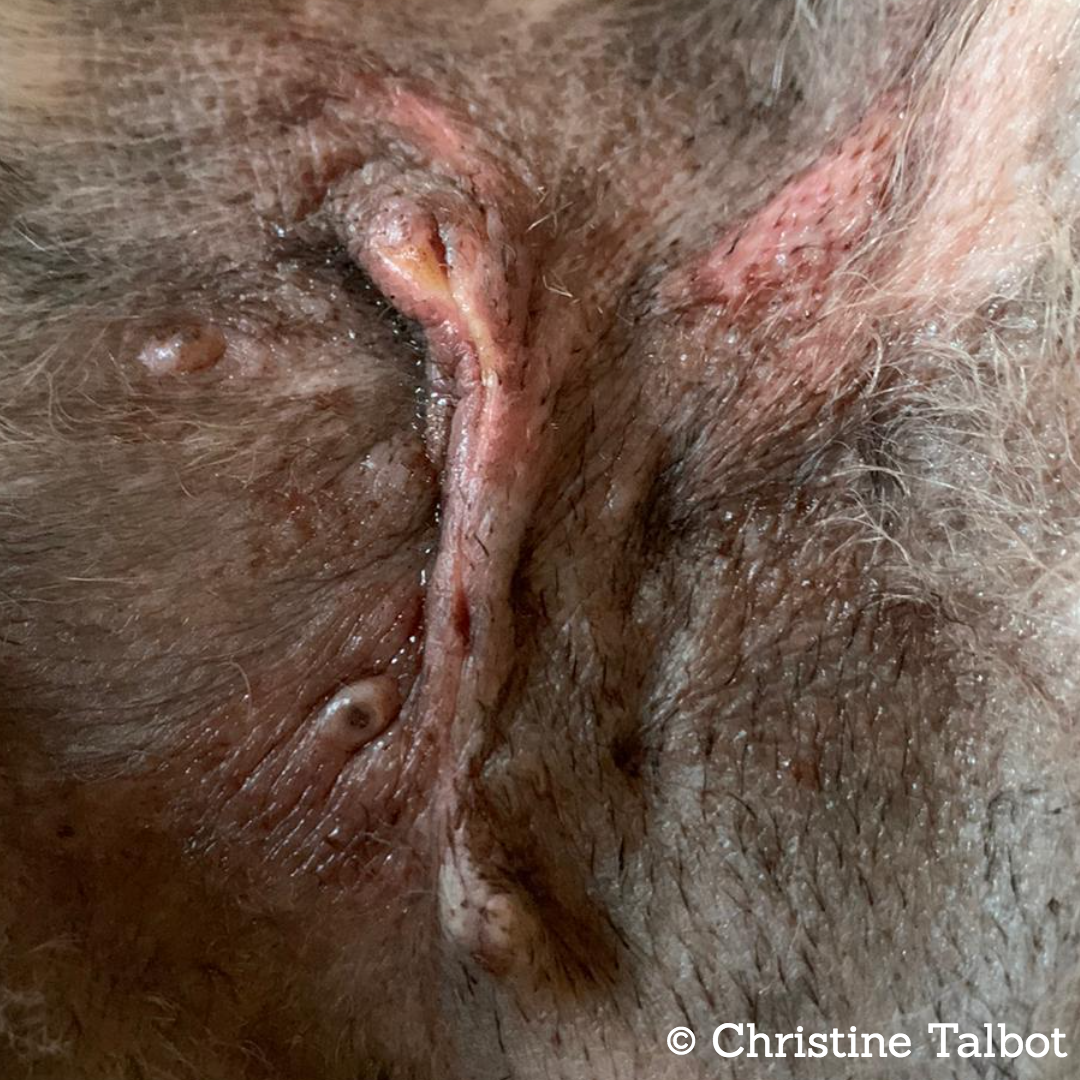
Picture 9: The scar looks engorged, aspirated at the vets.
Jack returned to the vets for routine inoculations and had a needle aspiration of the wound as they felt it had filled with fluid. The nature and reason for the tear plus being a farm dog increased the possibility for infection to occur even with regular cleaning and keeping the area dry.
31st March 2021
Jack’s second session of Deep Oscillation using a lower Hz with the applicator head. Again the area responded very positively to treatment and appeared to be healing well with no further indication of any fluid build up.
27th April 2021
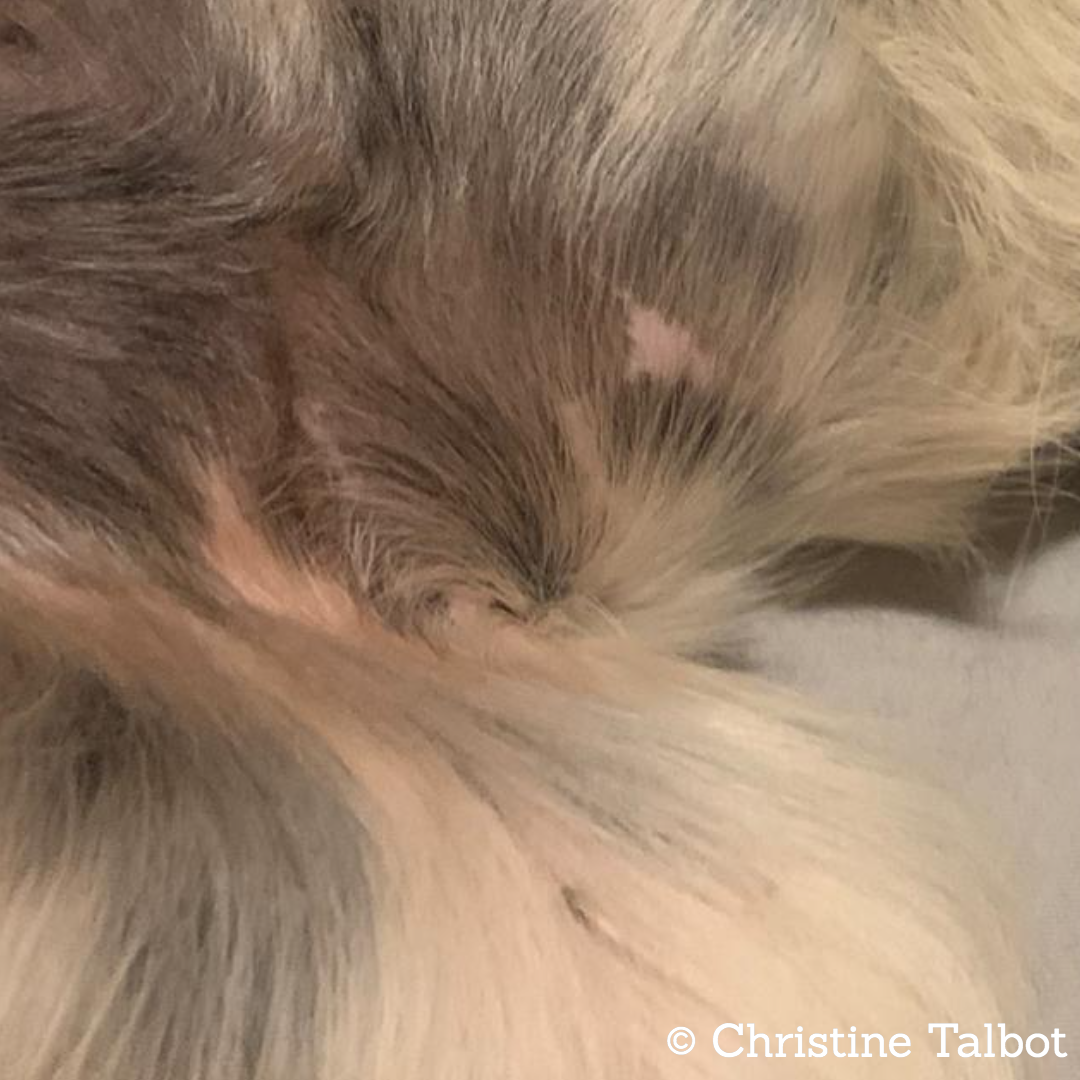
Picture 10: After just 6 weeks the comparison in the scar is remarkable; possibly assisted by Jack's high protein raw meat diet and a farm boy immune system.
But Deep Oscillation was really the magic ingredient here!
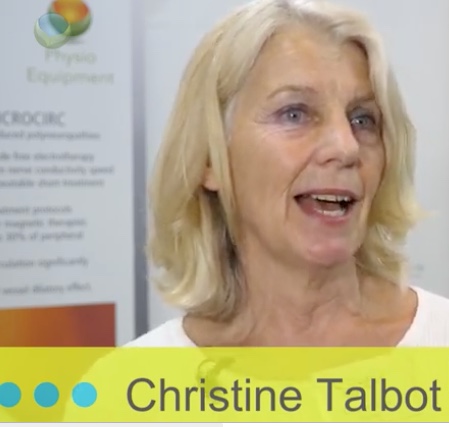
Treatments used after prior clinical evaluation by Christine Talbot, Lymphoedema and Bowen Practitioner with assistance from the animals owner (her daughter).
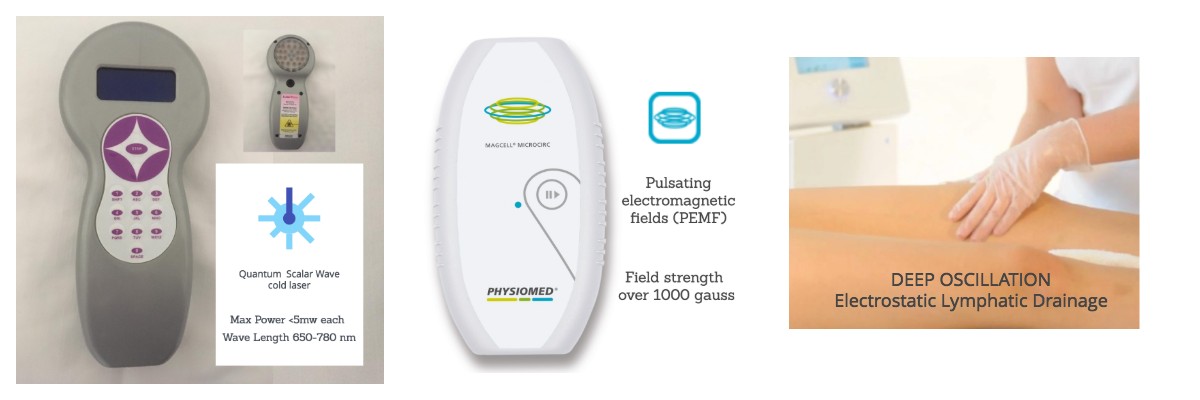
In Conclusion:
Although Jack only received two treatments with Deep Oscillation due to a lack of free time for his Mum to visit, those twenty minute sessions have shown to be advantageous to wound healing and the speed at which that occurs with this therapy.
Christine Talbot
SRN BLS MLD UK, Vodder, Leduc, LTA Fill & Flush, Casley Smith MLD DLT Practitioner and Lymphoedema Bowen Practitioners. BA Member.
Stoborough Meadow
Wareham Dorset
BH20 5HR
Telephone 01929 556560
Mobile 07881 598 937
DEEP OSCILLATION
In contrast to externally applied, mechanical forms of therapy, (e.g. vibration), the therapy effect of DEEP OSCILLATION® takes place in the tissue itself and works through the entire depth of the tissue layers (skin, connective tissue, subcutaneous fat, muscles, blood and lymph vessels)
DEEP OSCILLATION® helps in speeding up and improving wound healing processes. Through the oedema-reducing and anti inflammatory effect, the local metabolic elimination and alimentation is improved in all tissue layers, whereby tissue regeneration and wound closure are encouraged on many levels. This is documented by the significant improvement in planimetric and biochemical parameters of the wound healing.
Magcell Information
Magcell Microcirc is a hand held device, based on pulsed electromagnetic field therapy (PEMF) which permeates a 3-5 cm depth and is proven to encourage and increase blood flow to the area (Funk et al, 2014):
“MAGCELL® MICROCIRC significantly increases micro-circulation (p < 0,001) while nitric oxide (NO) has a blood vessel dilatory effect. The application of the rotating MagCell-SR to the HUVEC cultures leads to a rapid onset and a significant increase of Nitric Oxide (NO) release after 15 minutes. Thus, frequencies between 4 and 12 Hz supplied by the device improve microcirculation significantly. Therefore, this device can be used in all clinical situations where an improvement of the microcirculation is useful like in chronic wound healing deficits.”
Low level laser therapy (LLLT) Information
"Low level laser therapy (LLLT) is the use of low energy laser light in injuries and wounds in order to improve wound healing, reduce inflammation and alleviate pain. The laser light is monochromatic, coherent and in the red or near infrared spectrum (600 nm – 1000 nm). It is applied at low power density (1 mW to 500 mW/cm2) (“low energy laser”).
In contrast to other medical laser applications LLLT is not a thermal method (i.e. surgical lasers), but produces photochemical effects in the tissue in a similar way to photosynthesis in plants. LLLT is simple to use, effective and cost-efficient and free of side effects. Treatment takes a few minutes and depending on the indication is repeated at longer or shorter intervals and in accordance with healing success. The success of LLLT is based on the following general action principles: tissue regeneration, inhibition of inflammation, alleviation of pain, improvement in circulation, reduction in swelling" Low-Level-Laser-Therapy (LLLT) in Chronic Wounds - Ludwig-Maximilian University Munich, Germany.
References
DEEP OSCILLATION References
https://www.physiopod.co.uk/references.shtml
Magcell®
Hitrov N.A., Portnov V.V. (2008): MAGCELL® ARTHRO in der Behandlung von Arthrose im Kniegelenk. Die Naturheilkunde 3, 25-27. - English translation (Hitrov N.A., Portnov V.V. (2008): MAGCELL® ARTHRO in the treatment of osteoarthritis of the knee joint. Naturopathy 3, 25-27.)
Reimschüssel A., Bodenburg P. (2009): Niederfrequente elektromagnetische Felder. Erfolgreich in der Therapie der Myoarthritis des Kiefergelenkes. Die Naturheilkunde 5, 28. - English translation: Reimschüssel A., Bodenburg P. (2009): Low-frequency electromagnetic fields. Successful in the therapy of myoarthritis of the temporomandibular joint. Naturopathy 5, 28.
Low Level Laser
Mosca, R. C., et al. (2019). "Photobiomodulation Therapy for Wound Care: A Potent, Noninvasive, Photoceutical Approach." Adv Skin Wound Care 32(4): 157-167.
Machado, R. S., et al. (2017). "Low-level laser therapy in the treatment of pressure ulcers: systematic review." Lasers Med Sci 32(4): 937-944.
Tchanque-Fossuo, C. N., et al. (2016). "A systematic review of low-level light therapy for treatment of diabetic foot ulcer." Wound Repair Regen 24(2): 418-426.
Kuffler, D. P. (2016). "Photobiomodulation in promoting wound healing: a review." Regen Med 11(1): 107-122.
